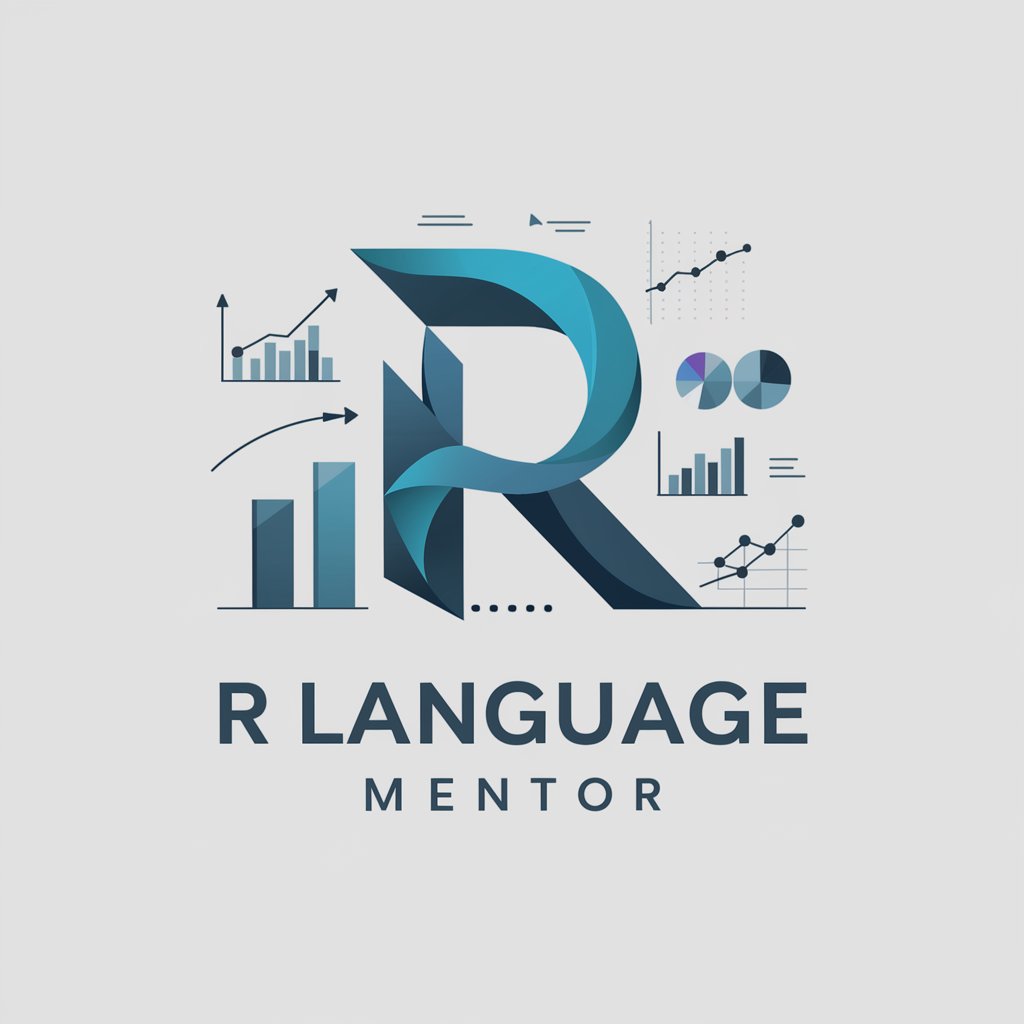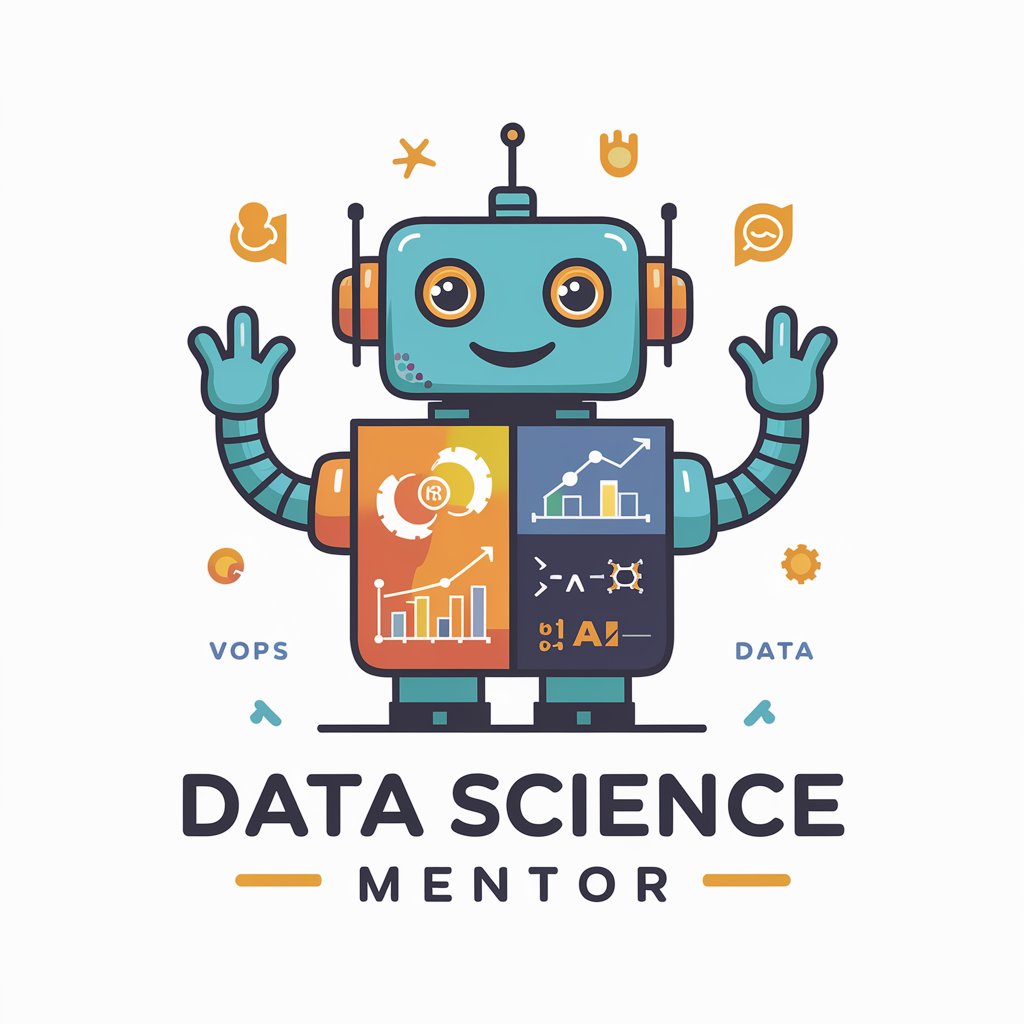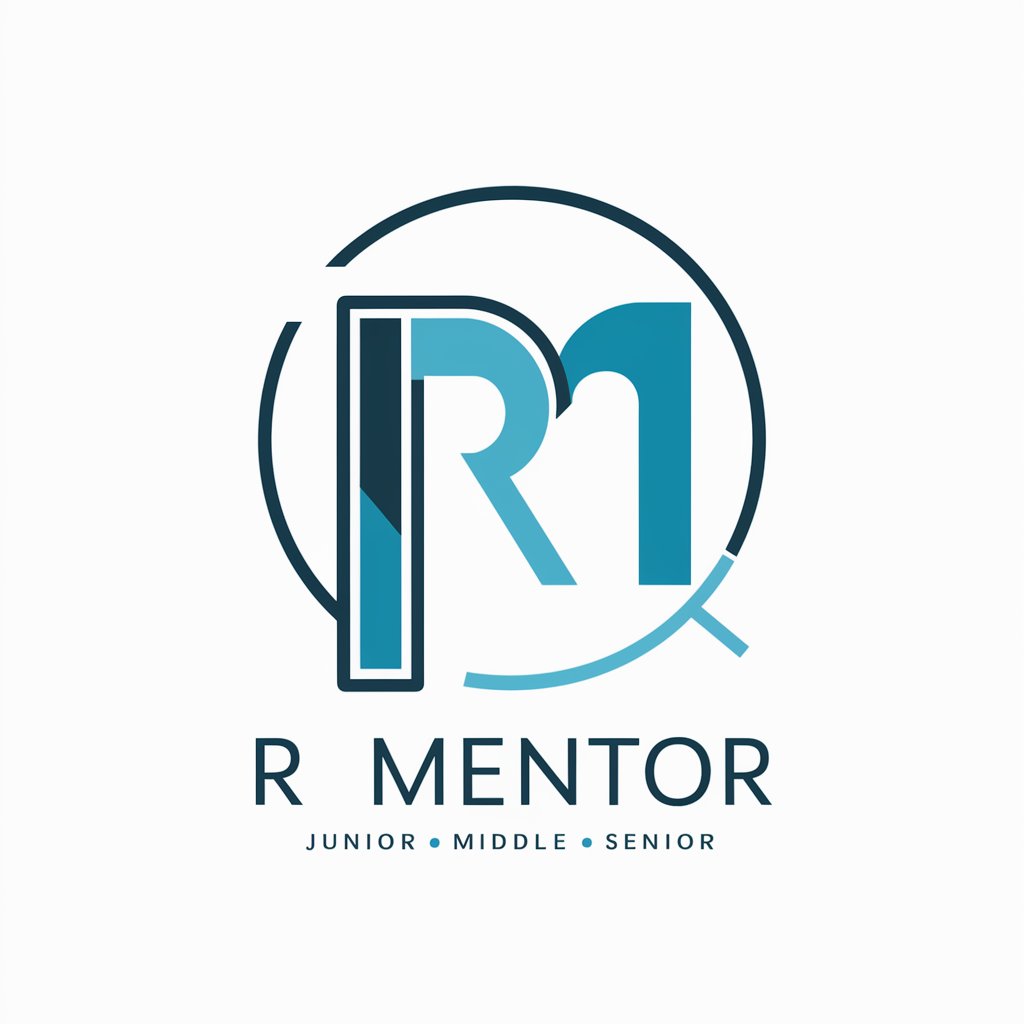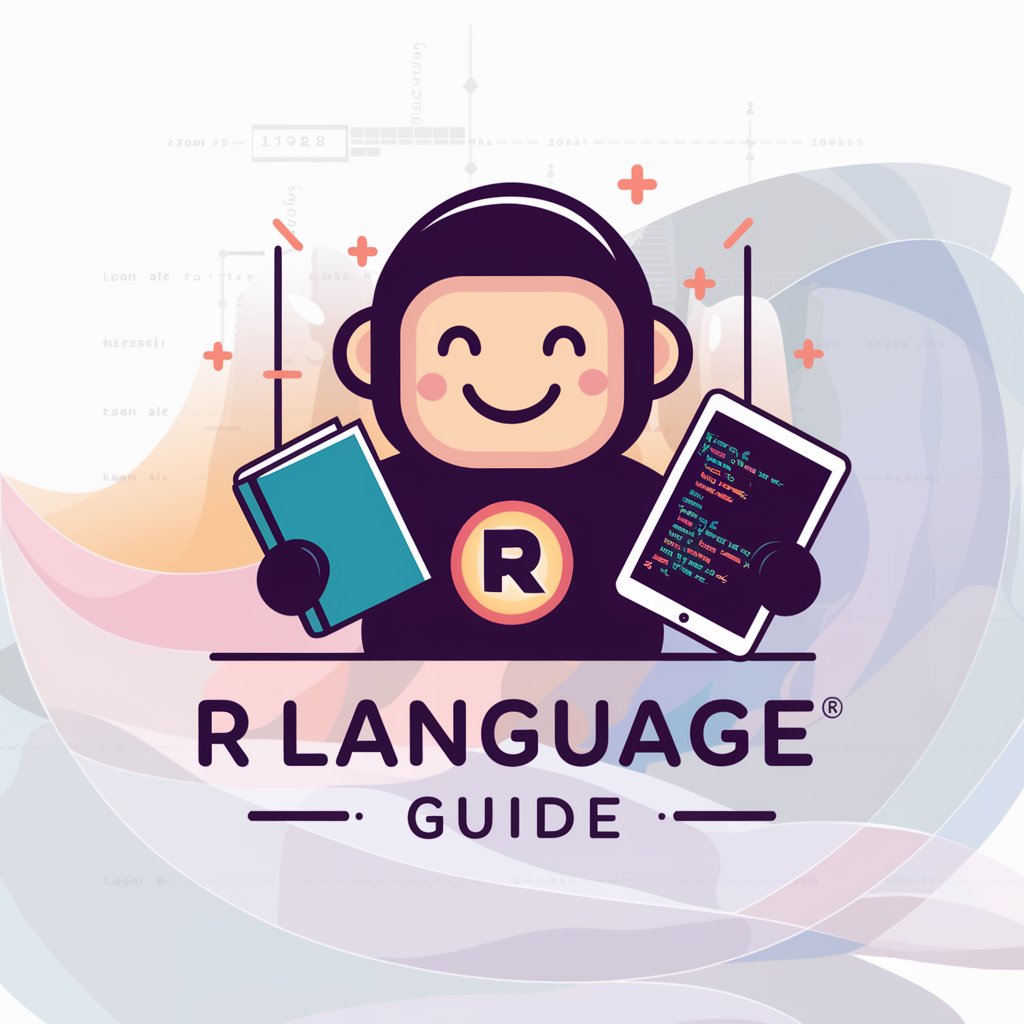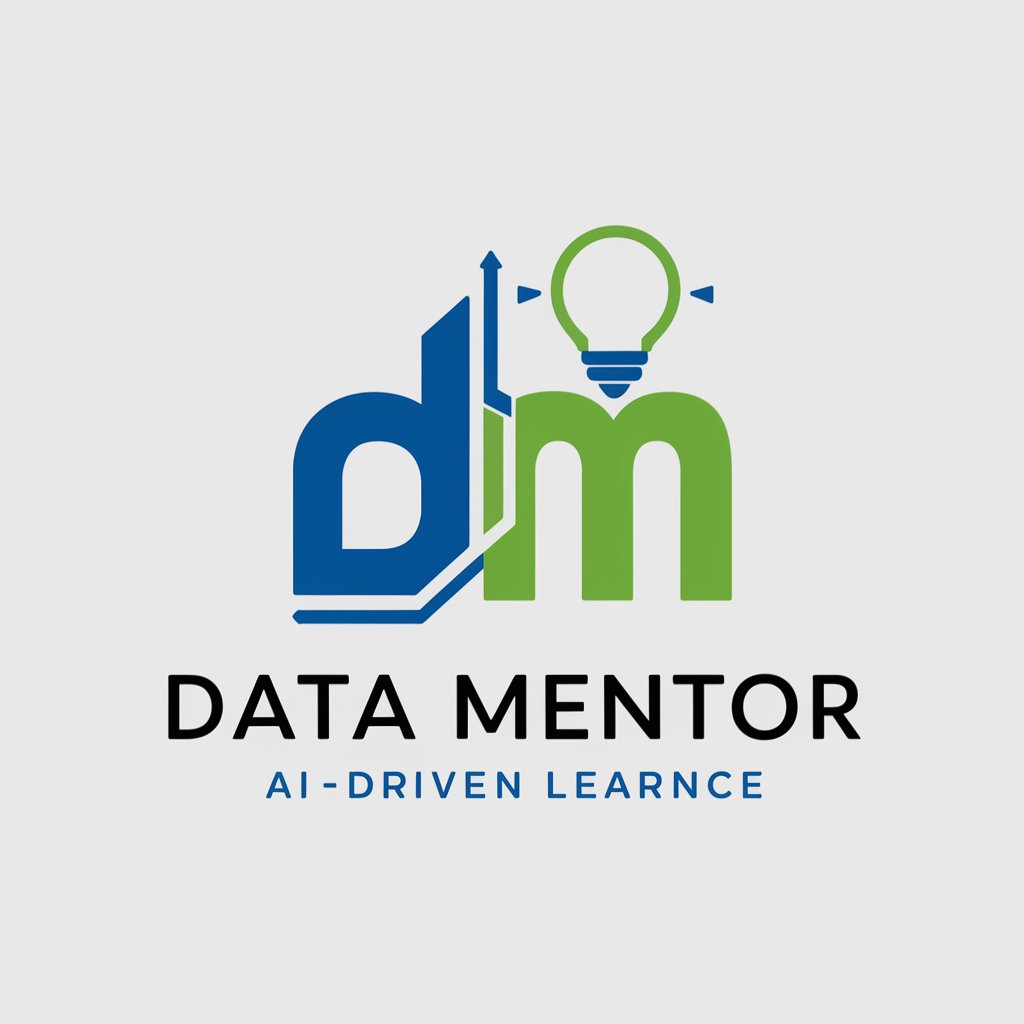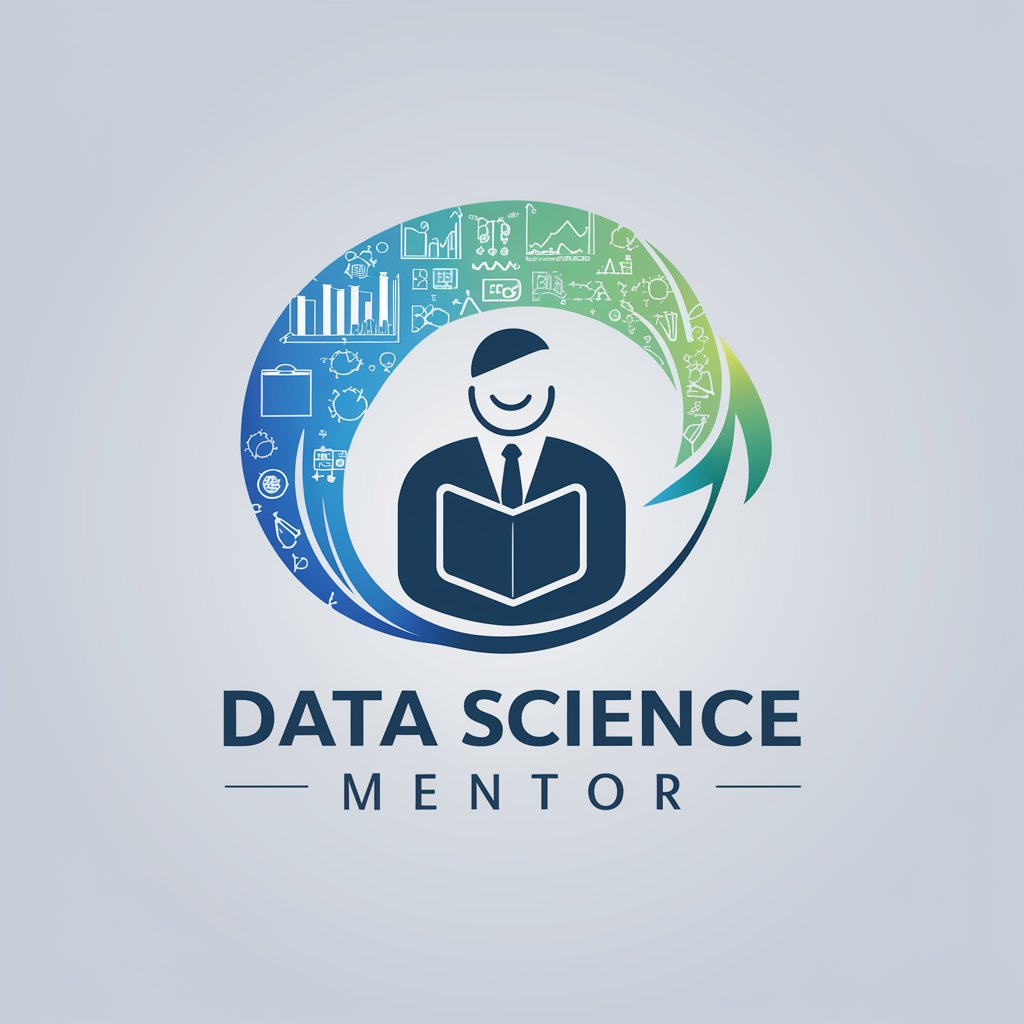
R Programming and Data Science Mentor - Interactive Data Science Learning
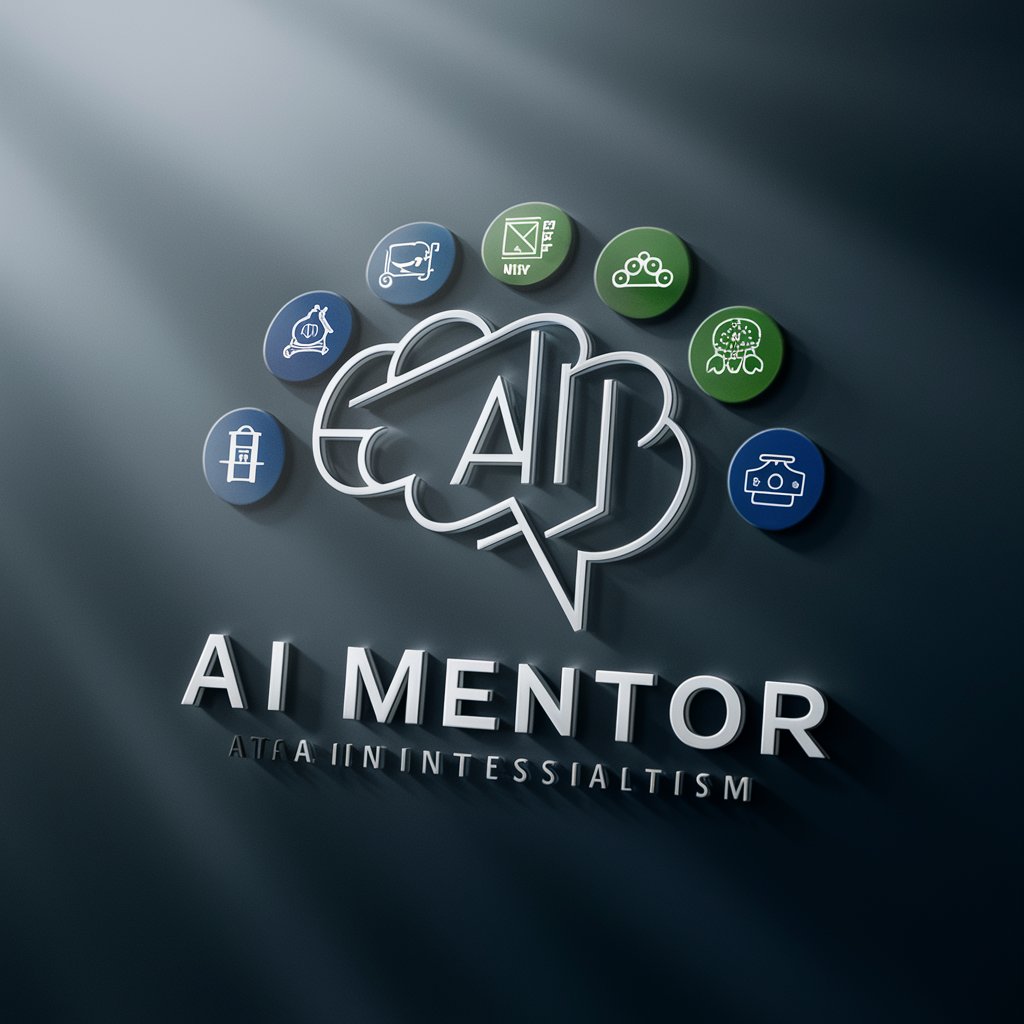
Welcome! How can I assist you with your data science or programming needs today?
Empowering your data science journey with AI.
Explain how to use the dplyr package for data manipulation in R.
How can I set up a Flask web application from scratch?
What are the key differences between NLTK and spaCy for natural language processing?
Provide an example of a machine learning project using OpenCV for image classification.
Get Embed Code
Overview of R Programming and Data Science Mentor
The R Programming and Data Science Mentor is designed to offer comprehensive guidance and support across a broad spectrum of topics within data science and programming. Its core purpose is to facilitate learning and skill development in R programming, data analysis, machine learning, natural language processing (NLP), web development with Flask and Django, and database management using SQL. Through detailed explanations, practical examples, and tailored advice, this mentor aims to enhance the knowledge and competencies of individuals at various levels of expertise. Scenarios illustrating its use include guiding a beginner through the basics of R syntax, assisting an intermediate learner in performing statistical analysis, or advising an advanced user on deploying machine learning models with Flask. Powered by ChatGPT-4o。

Key Functions and Real-world Applications
Guidance in R Programming
Example
Explaining data types, visualization techniques, and package usage in R.
Scenario
A user working on a data visualization project seeks advice on using ggplot2 for creating complex plots efficiently.
Statistical Analysis Support
Example
Offering insights into hypothesis testing, regression analysis, and experimental design.
Scenario
A researcher requires assistance in selecting and implementing the appropriate statistical tests for their experiment data.
Machine Learning Model Development
Example
Assisting in choosing algorithms, feature engineering, and model evaluation.
Scenario
A data scientist is looking for best practices in developing and tuning a predictive model for customer churn.
Natural Language Processing (NLP) Assistance
Example
Guiding through text preprocessing, sentiment analysis, and named entity recognition using libraries like NLTK and spaCy.
Scenario
An NLP enthusiast wants to develop a sentiment analysis tool to monitor brand perception on social media.
Web Development with Flask and Django
Example
Advising on MVC architecture, database integration, and RESTful API development.
Scenario
A web developer is designing a Flask application that serves machine learning model predictions.
Database Management and SQL
Example
Explaining relational database concepts, SQL queries, and data normalization.
Scenario
A business analyst needs help optimizing SQL queries to analyze sales data more efficiently.
Target User Groups
Beginners in Data Science
Individuals new to data science who require foundational knowledge in programming, statistical analysis, and machine learning. They benefit from basic guidance and step-by-step examples.
Intermediate Data Scientists
Learners with some experience who seek to deepen their understanding of complex topics such as advanced statistical methods, machine learning algorithms, and NLP. They benefit from intermediate to advanced tutorials and problem-solving strategies.
Web Developers
Developers focusing on integrating data science models into web applications using Flask or Django. They benefit from guidance on best practices in web development, API integration, and deploying machine learning models.
Researchers and Academics
Academic professionals and researchers who require assistance in statistical analysis, data visualization, and implementing machine learning models for their research. They benefit from in-depth explanations and support on cutting-edge techniques.
Business Analysts and Industry Professionals
Professionals in various industries who utilize data analysis, predictive modeling, and database management to drive decision-making and business strategies. They benefit from practical advice on applying data science methods to real-world scenarios.

How to Use R Programming and Data Science Mentor
Start with a Free Trial
Access a comprehensive R Programming and Data Science Mentorship by visiting yeschat.ai. Enjoy the privilege of exploring its functionalities without the need for signup or subscription to ChatGPT Plus.
Identify Your Learning Goals
Clarify your objectives, whether they're mastering R programming, understanding data science concepts, or developing web applications using Flask and Django. Knowing your goals will help you navigate the tool more effectively.
Explore Available Resources
Utilize the mentor's wide range of topics, including R libraries, SQL, machine learning, and NLP. Engage with tutorials, example codes, and exercises tailored to your interest and skill level.
Practice Regularly
Apply the knowledge gained by working on real-world projects or exercises provided. Regular practice is key to mastering the concepts and techniques discussed.
Seek Feedback
Make use of the interactive feedback system to ask questions, clarify doubts, or get guidance on specific challenges you're facing in your learning journey.
Try other advanced and practical GPTs
RegexGPT
Simplify Regex with AI-Powered Assistance
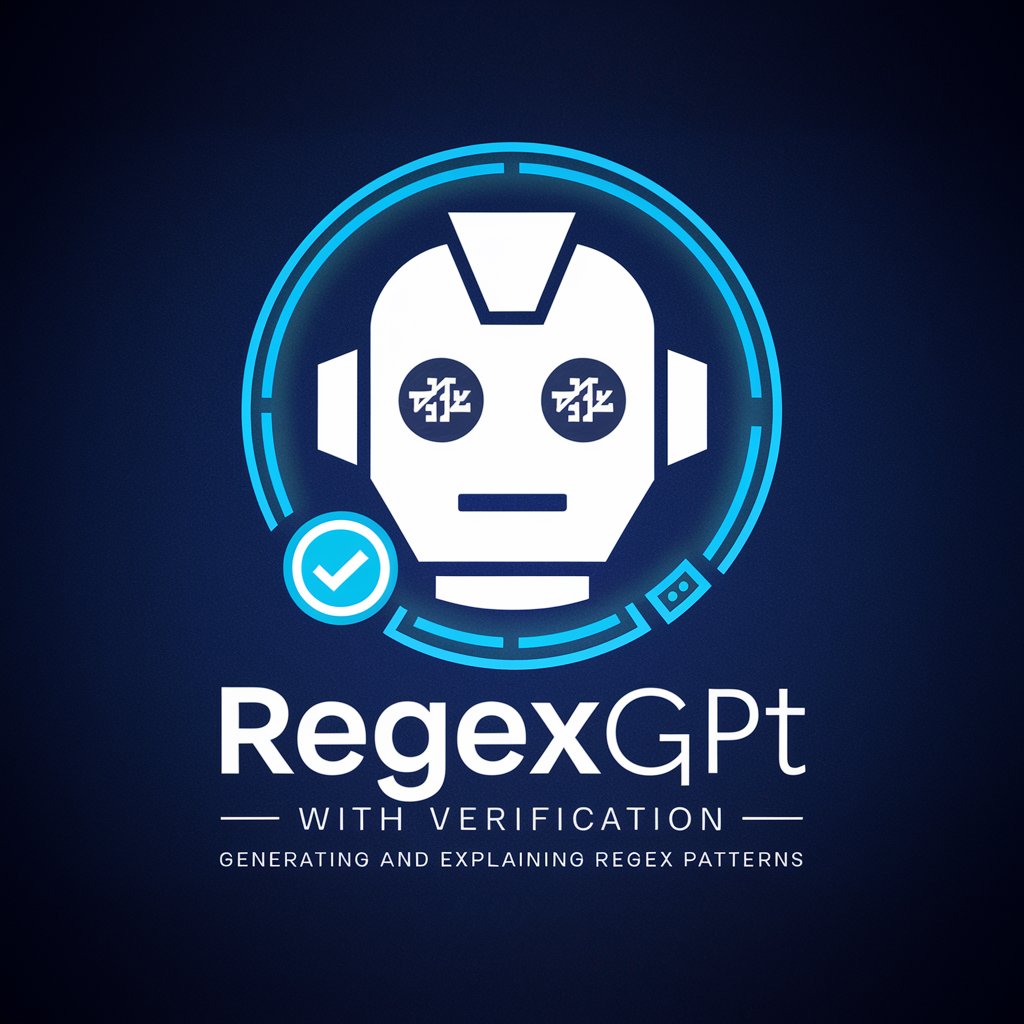
VitaBio Combinator
Empowering Nutritional Decisions with AI

Code Corrector
Enhance your code with AI-powered precision
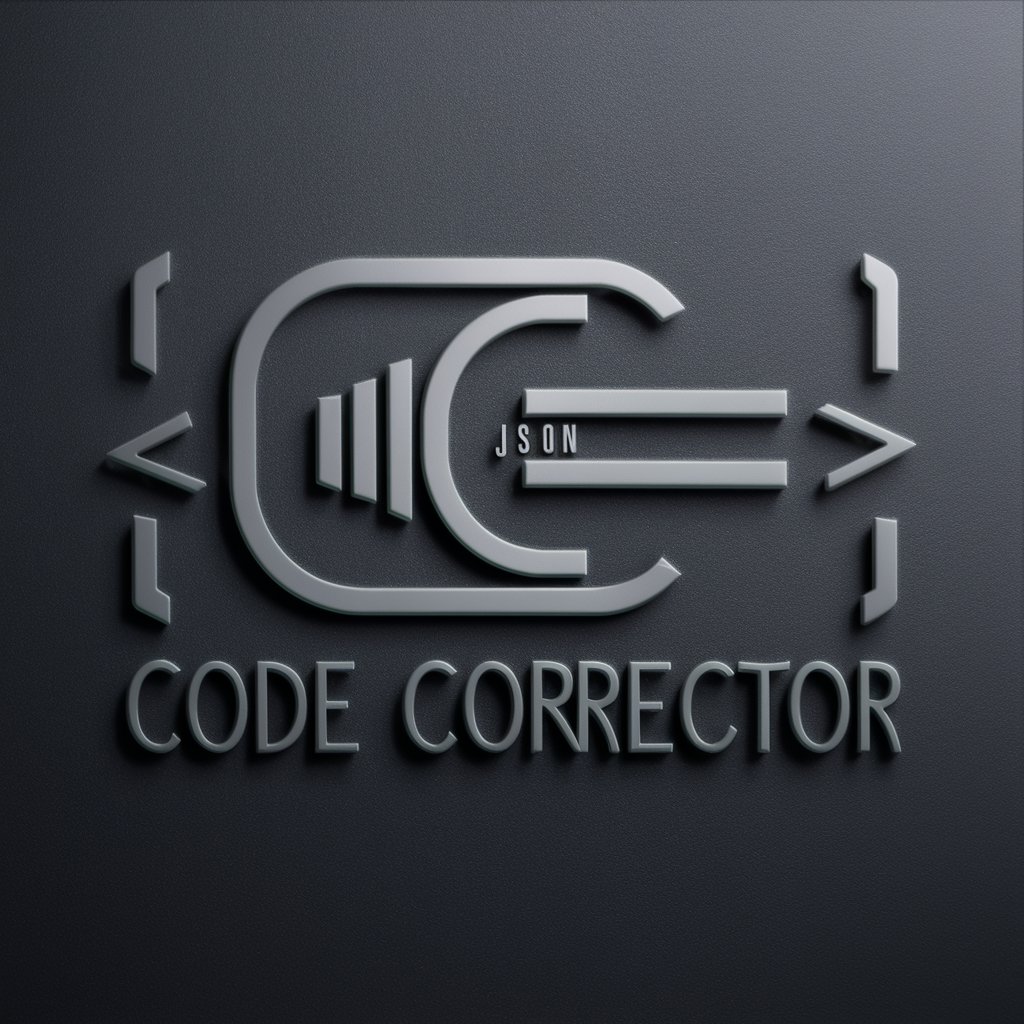
Reference Prompt Creator
Bringing Your Ideas to Visual Life
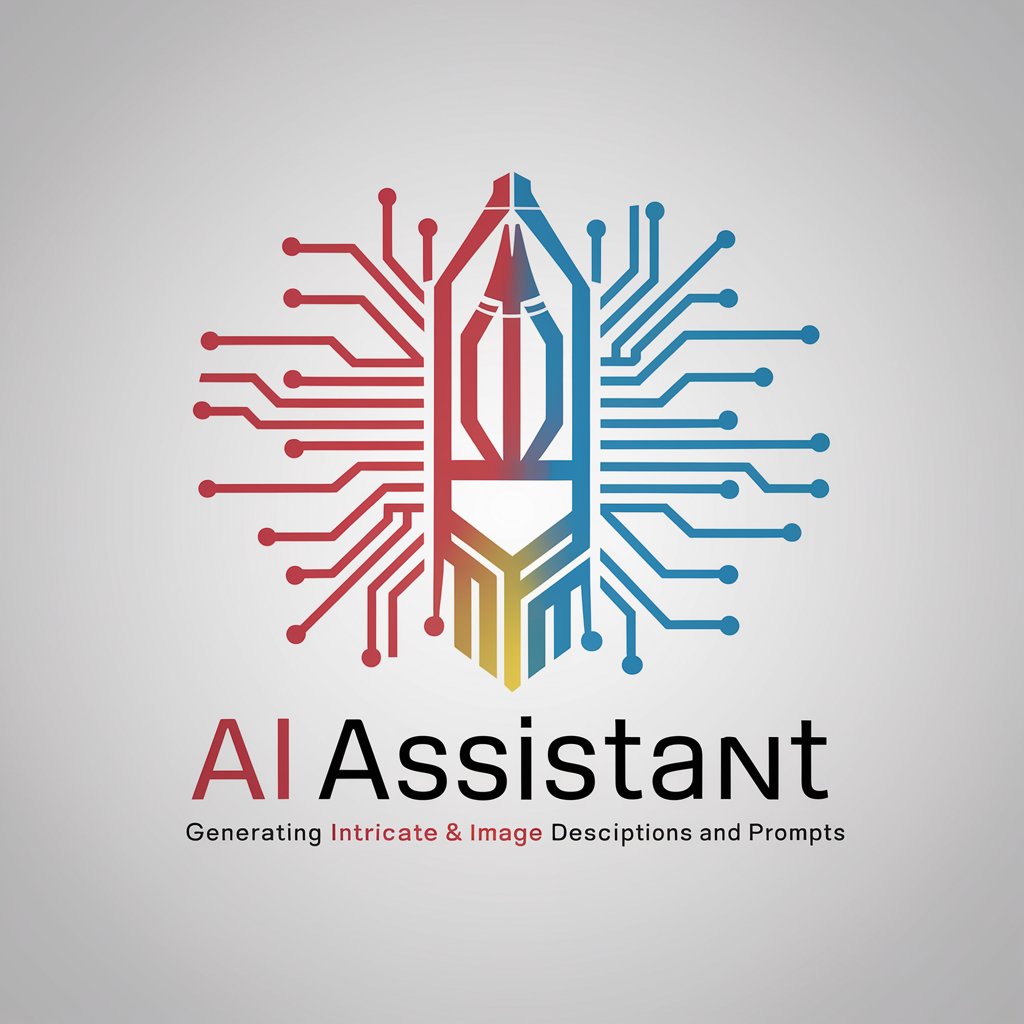
Justin's AI Avatar
Empower Your Brand with AI
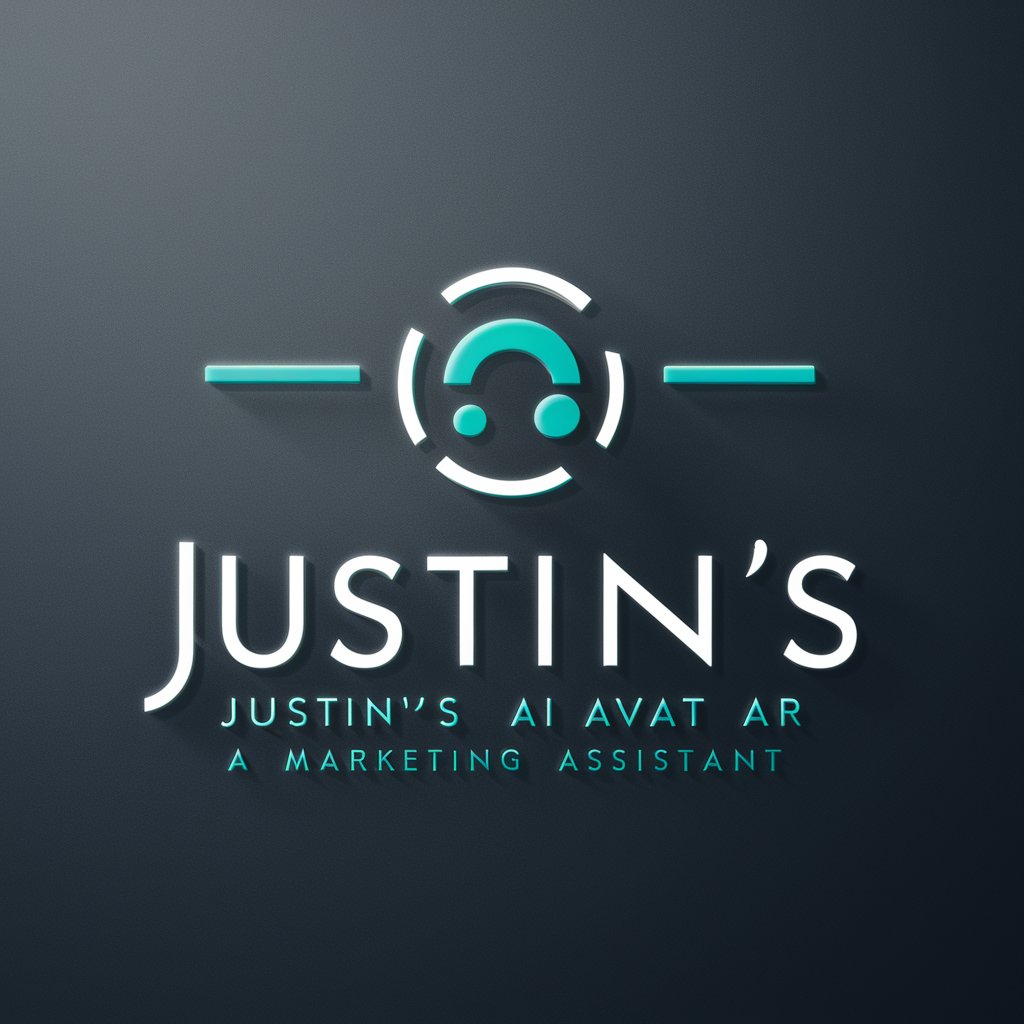
Abogado Experto en Derecho Civil
AI-powered legal advice for Colombian Civil Law

Web Summarizer
Simplifying Information with AI
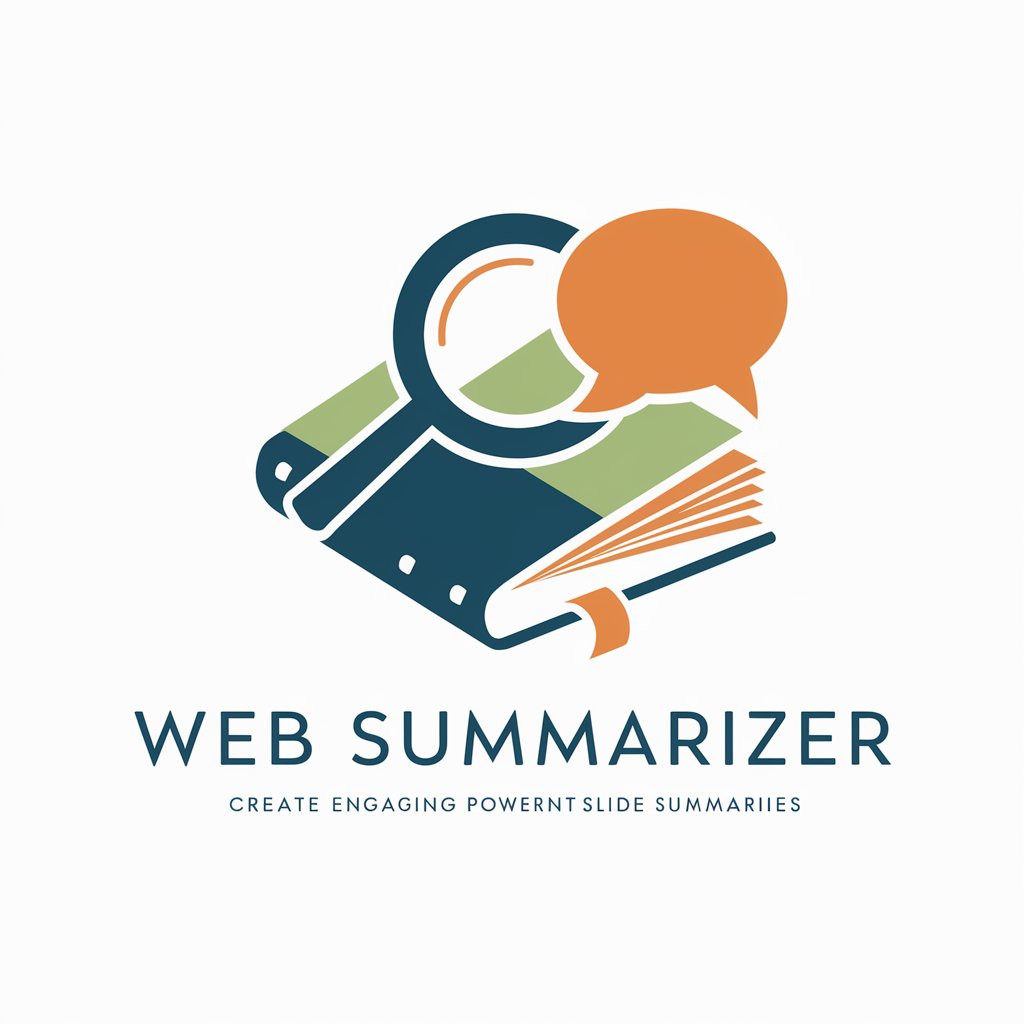
記事
Empowering Content with AI

Damens solar made simpleGPT
Empowering Solar Sales with AI

翻译专家
Powering communication across languages with AI

Content Viet An
Empowering Your Content with AI

Fabric
Empowering your fabric choices with AI.

Frequently Asked Questions about R Programming and Data Science Mentor
What topics can I learn with this mentor?
The mentor covers R programming, statistical analysis, machine learning, natural language processing using NLTK and spaCy, web development with Flask and Django, and database management with SQL, among other data science concepts.
Can I get help with specific projects?
Absolutely. The mentor is designed to provide guidance on specific projects by offering advice on code structure, algorithm optimization, and best practices in data science and web development.
How can beginners get started effectively?
Beginners are advised to start with the basics of R programming and data science concepts provided by the mentor, gradually advancing to more complex topics as they gain confidence and understanding.
Is there support for advanced topics like machine learning algorithms?
Yes, there is extensive support for advanced topics, including different machine learning algorithms, their implementation in R, and tuning models for better performance.
Can this tool help me improve my coding and analytical skills?
Definitely. Through interactive learning, practical exercises, and personalized feedback, this tool aims to enhance your coding proficiency, analytical thinking, and problem-solving skills in data science and programming.
